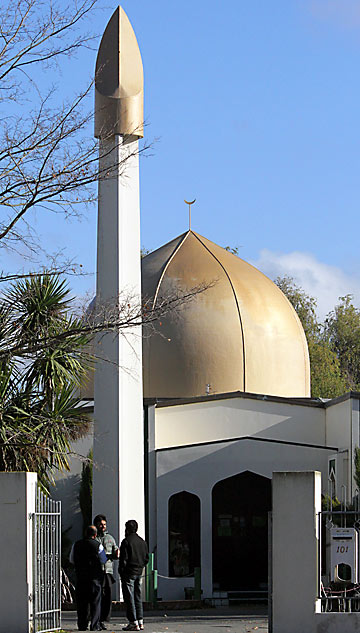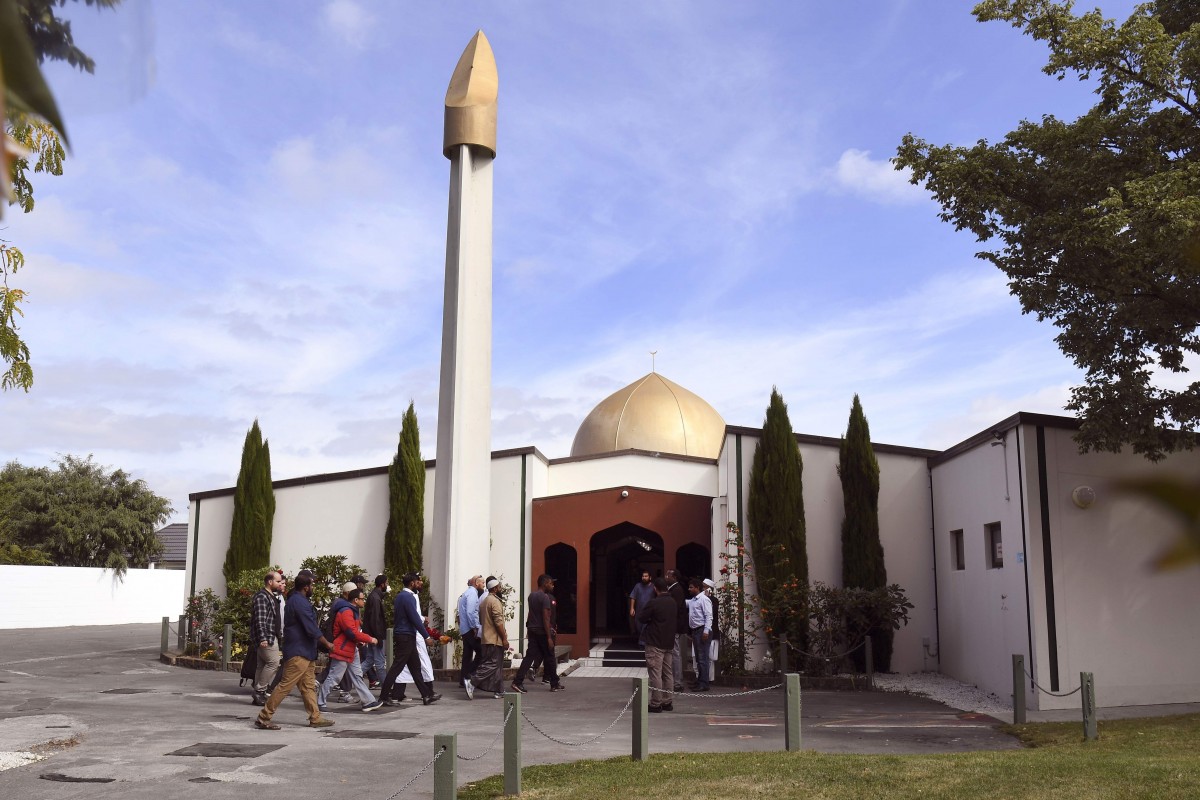
If one wants to know what a mosque preaches, one can examine where it’s funding comes from. Saudi Arabia has supported Turkey against Assad thought their financing of Islamic State. This is the money that is used to lure overseas jihadi such as the ones from Christchurch and Hamilton. There is no way any NZ Muslim will ever admit that their mosque was linked to terrorists.
“Muslim Association of Canterbury (MAC) secretary Abdelfattah Qasem said the mosque had about 550 members from 40 countries, and a further 450 regularly attended Ahmed’s weekly sermons. Many were refugees who fled conflict overseas, coming to Christchurch for a more peaceful life.
Despite the growing numbers, many Cantabrians know little about what goes on behind the gates at 101 Deans Ave. Islam was thrust into the national spotlight this month after media reported two Australian men killed in a US drone strike in Yemen had met and been introduced to radical Islam in Christchurch – claims fiercely denied by the city’s Muslim leaders.”
The Deans Ave facility was partly funded by a $460,000 gift from the Saudi kingdom.
Most Muslims are good people but more needs to be done to promote the “good things” the religion is about, Farid Ahmed says.
“Islam teaches us that we should … have the most love for our family, then extend that to our neighbours and society,” he said.
Ahmed voluntarily delivers weekly sermons and classes to the members of the Christchurch mosque, known as Masjud Annur, and believes the values central to his religion would be shared by most New Zealanders.
Muslim Association of Canterbury (MAC) secretary Abdelfattah Qasem said the mosque had about 550 members from 40 countries, and a further 450 regularly attended Ahmed’s weekly sermons. Many were refugees who fled conflict overseas, coming to Christchurch for a more peaceful life.
Despite the growing numbers, many Cantabrians know little about what goes on behind the gates at 101 Deans Ave. Islam was thrust into the national spotlight this month after media reported two Australian men killed in a US drone strike in Yemen had met and been introduced to radical Islam in Christchurch – claims fiercely denied by the city’s Muslim leaders.
Qasem said the Christchurch mosque was open to all, including the wider public and non-Muslims, but anyone who “wants to disturb the harmony of the Muslim community” or the wider Canterbury community would not be tolerated.
“We’d be willing to ban anyone from coming into the mosque if they’re willing to do that, whether it’s by actions or promoting certain ideas,” he said.
MAC did not make any effort to recruit new members, as new Muslims would seek out the mosque on their own anyway, he said. Most of the group’s funding came from donations made by members, but members were under no obligation to donate. Funding sometimes came from other sources, such as the Federation of the Islamic Associations of New Zealand – a national body aiming to provide a unified voice for the country’s Muslim community and provide internationally-recognised Halal certification.
“We are transparent and will continue to be transparent,” Qasem said.
MAC’s next major project would be to build a community hall and five classrooms behind the Deans Ave mosque.
The Islamic Development Bank – a multinational institution aiming to support the economic and social progress of Muslim communities – had contributed some funds, but the rest still had to be raised.
Qasem estimated the project would cost about $800,000. It was hoped the tender process would begin later this year.
On Sunday, Ahmed teaches people aged “from six to 60” how to read the Koran and pray.
His work at the mosque was part of his “obligation” to teach younger generations about the “good messages” Islam promoted.
Up to 60 people packed one room in the Christchurch mosque last Sunday for Ahmed’s class on the rules of fasting ahead of the start of Ramadan month this weekend.
During Ramadan, Muslims could not eat or drink between sunrise and sunset. It was about self-control, Ahmed said.
It was considered one of the five “pillars” of Islam, along with declaring Allah to be the only God and the prophet Muhammad to be his messenger, performing ritual prayers five times a day, giving to the poor and needy, and taking pilgrimage to Mecca – Muhammad’s birthplace – at least once if possible.
Ahmed believed Islam was a religion of peace, and was disappointed some used it to promote conflict and hate overseas.
“Some people are using Islam to promote the wrong things. Allah does not give permission to hate anyone or persecute anyone.”
The mosque was planning an open day in August, and would invite everyone in Christchurch to visit. Ahmed said it was important for the mosque to be part of the wider community.
“We are part of New Zealand; New Zealand is part of us. We love this country,” he said.
AT A GLANCE
More Muslims in New Zealand: Last year, 46,149 people identified as Muslim – up 29.6 per cent from 2006.
About a quarter were born in New Zealand, while 21 per cent were born in the Pacific Islands, 26.9 per cent in Asia and 23.3 per cent in the Middle East and Africa.
The first Muslims moved to Canterbury in 1874 and the South Island’s first mosque opened in Christchurch in 1985.
The Deans Ave facility was partly funded by a $460,000 gift from the Saudi kingdom.

